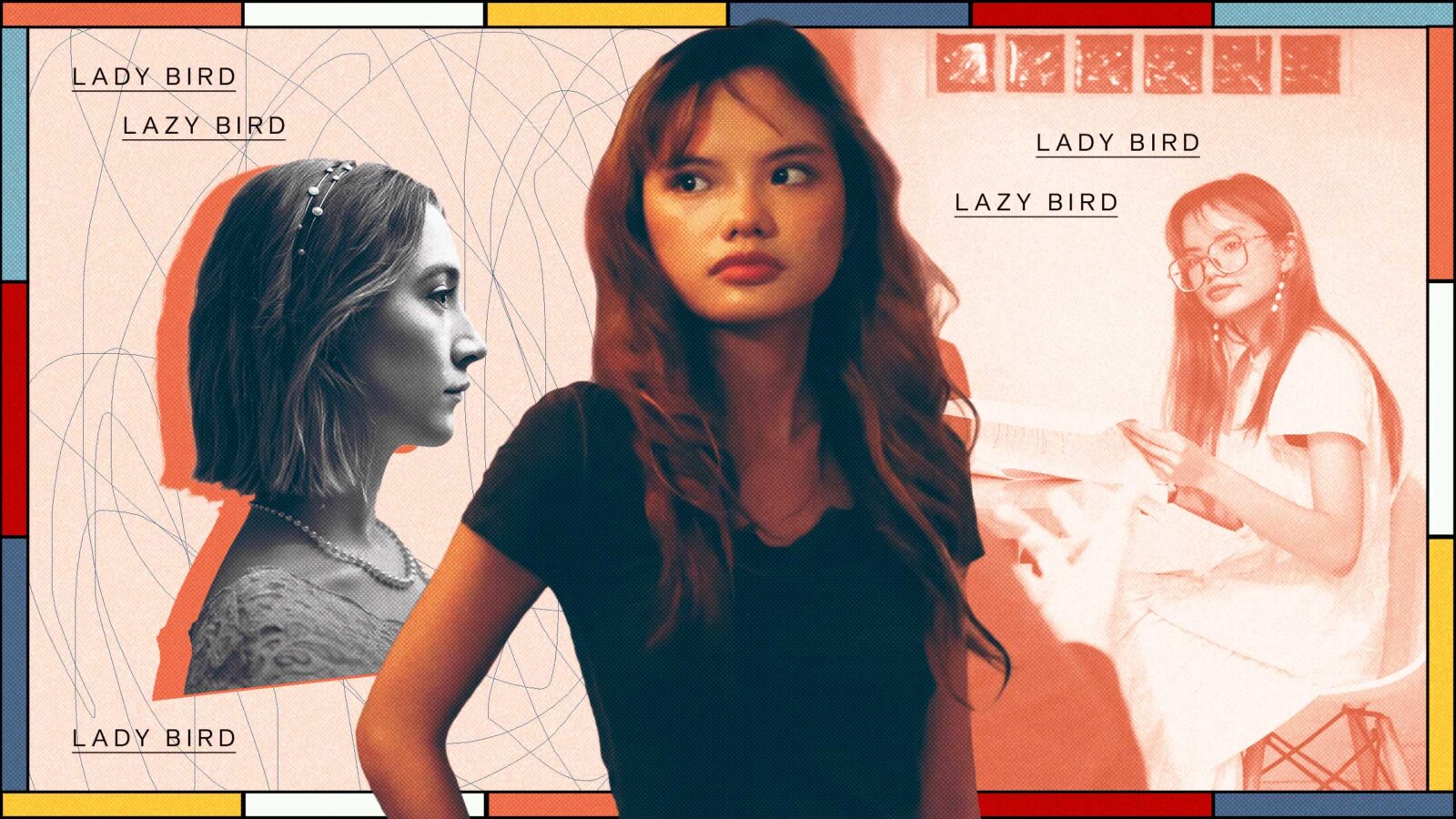In ten minutes, short film ‘Lazy Bird’ tells an amusing and resonant tale about expectations and young adulthood.
Related: What The Viral Success of ‘A Catholic Schoolgirl’ Means To Student Filmmaker Myra Soriaso
Ah, growing pains. Young adulthood is a wild, wild time—in many ways. And we’re not just talking about fights with friends, breakups, late nights, academic failures, familial expectations, and all that—all the inner turmoil of questioning what you’re doing in your life and what you want to do with it just adds to the stress.
If you’ve ever watched Greta Gerwig’s Lady Bird (2017), you’d see this turmoil manifest in a story about a young girl with dreams of flying free from the humdrum of her hometown and a frustrating but loving relationship with her family, particularly her mother. The coming-of-age film tackles universal themes and experiences of growing up and dealing with family, friendship, and change, and has inspired many a writer and/or director to channel that realistic, resonant, and empathetic way of filmmaking and tell simple but affecting stories about ordinary people in all their extraordinary glory.
Right here in the Metro, one such filmmaker ventured into the unknown and drew inspiration from Greta Gerwig’s acclaimed film to make her own short but thoughtful tale about the “in-between of getting better and growing up.” Titled Lazy Bird, this 2025 short film was written and directed by aspiring young filmmaker and creative Lian Laya, in collaboration with a team of young creatives and actors.
PRESSURES AND PAINS
A passion project by Lian, Lazy Bird details a day in a young woman’s life (Kristina, played by Thea Reyes) and presents the measures she has to go through to not make her life any more tiring than it already is.
From responding in appeasing ways to her mother who wants to set her up on a blind date with a friend’s son to trying to work through the awkward beginnings of meeting someone new, Kristina is the epitome of just powering through all of it, day by day. The blind date between her and Jacob (Lau Apostol) brought to light their shared struggles involving the meddling, expectations, and worries of their respective mothers.

“I wanted to write about expectations mostly, and how people like Kristina [the main character] deal with meeting new people and bring their own personal ‘baggage’ along with them,” Lian says to NYLON Manila. “Personally, I really needed that story to be real and true.”
All the awkwardness, frustrations, weariness, and homesickness—they paint a picture so familiar to anyone who’s finding their way far from where they grew up. It’s not easy to make a life for yourself and break away from what you want yourself to be free from.
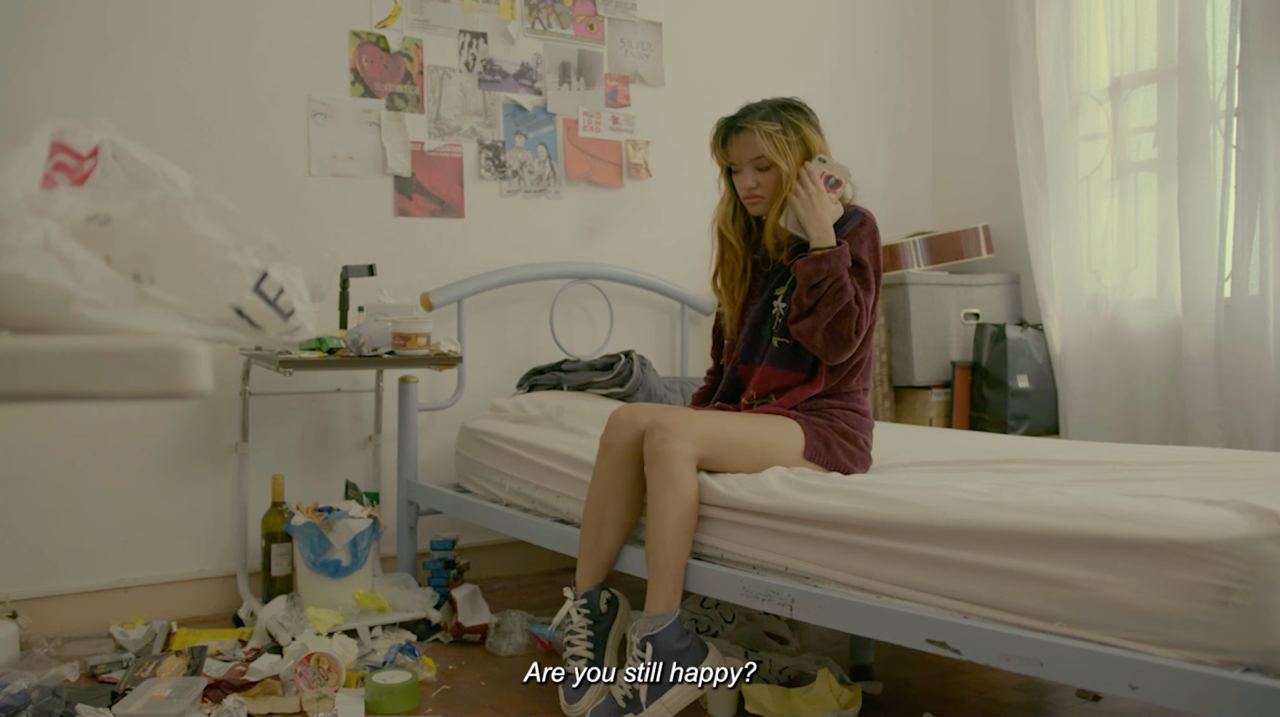
“Sayang naman kung hindi mag-aasawa si Kristina,” Jacob’s mother tells Kristina’s mother. Traditional norms of living, in all their clichéd and eyeroll-worthy glory are presented as a foundation for the main characters’ woes.
Which of us haven’t faced the eternal questions of “Ba’t ayaw mo maging doctor/lawyer/engineer?” or “Kailan ka mag-aasawa?” Though times are ever-changing, and the different ways in which we live our lives are getting to be more and more accepted, behind us always looms shadows of expectations.
THE TIES THAT BIND
Kristina is introduced by her mother as a soon-to-graduate, Latin honor-receiving med school student with her own condo in Manila. We find out exactly who she is as we see more of a life her own mother doesn’t get to see herself—one that’s lived in a messy condo by a tired girl who’s no longer in med school, who reluctantly agrees to a set-up to please her mother.
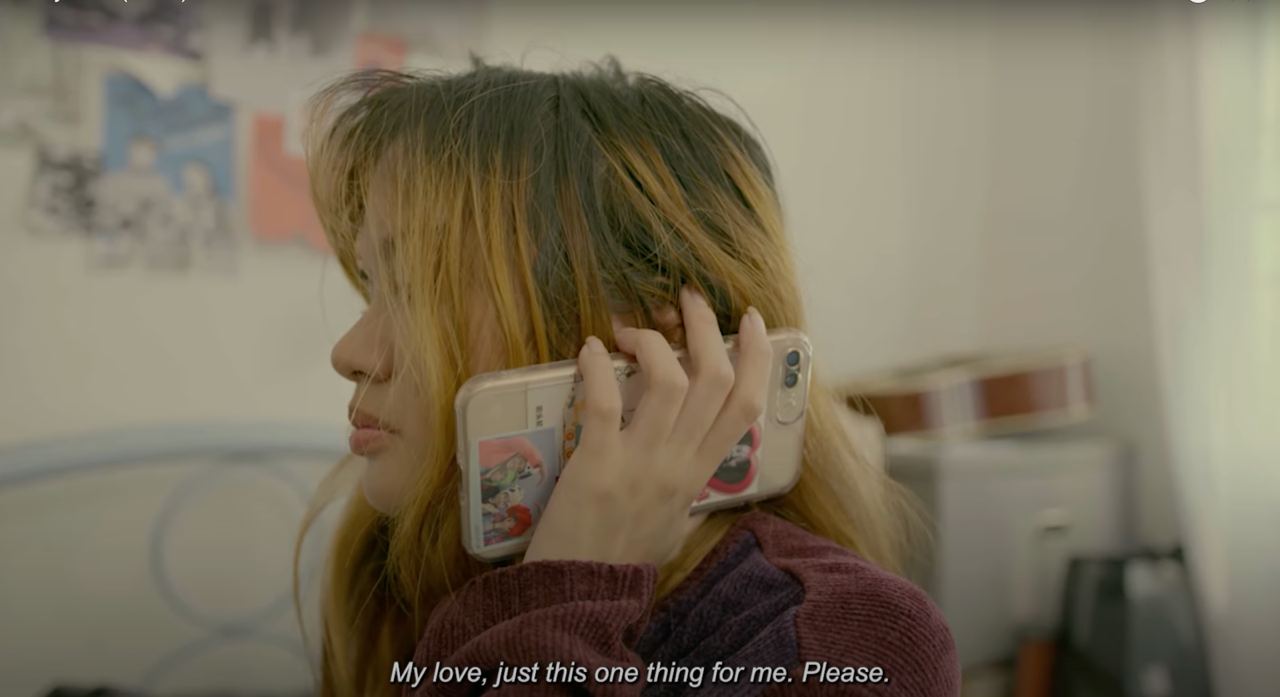
“This is Kristina’s story first,” Lian asserts. “And the whole allegory of expectations second.” We end up sympathizing and even rooting for the young Kristina, who’s just a young girl in this big world trying to get by. The relationship between mother and daughter is also highlighted, emphasizing the desire of Kristina to not let her mother down, and to assure both her mom and herself that things will turn out alright.
“Because it was a short film, I wasn’t too keen on exploring every nuance,” the writer and director says. “But I enjoyed writing about motherhood in the Filipino sense, which can be overbearing with high expectations for a lot of young people.”
We also get to meet Jacob, Tita Sally’s son who she thinks is about to take the bar exam (and who Kristina’s mom assumes is rich), who is actually a Twitch streamer who doesn’t want to become a lawyer.

When the two meet, they don’t reveal the truth of who they are to each other. The guarded, secretive ways we adopt as young adults stems from the need for self-preservation and to avoid conflict, and we can immediately understand that neither Kristina nor Jacob are too eager to let other people know about what they perceive as shortcomings in their lives (and perhaps it’s not just because they don’t want their truths reaching their respective mothers).
Lian acknowledges that young Filipinos do a lot of hiding and keeping secrets to make sure they always seem like they’re living up to the expectations of their parents, but she relays that she personally has a better relationship with her parents now than before, and she credits that to what she chooses to be private about or what she chooses to leave unsaid.
“Parehas naman tayong loser, eh,” Jacob tells Kristina in the film. In the end, he offers to help her clean her condo, two people unsure of where life is going to lead them next, but they’ll take it one step at a time.
EXPLORING STORYTELLING
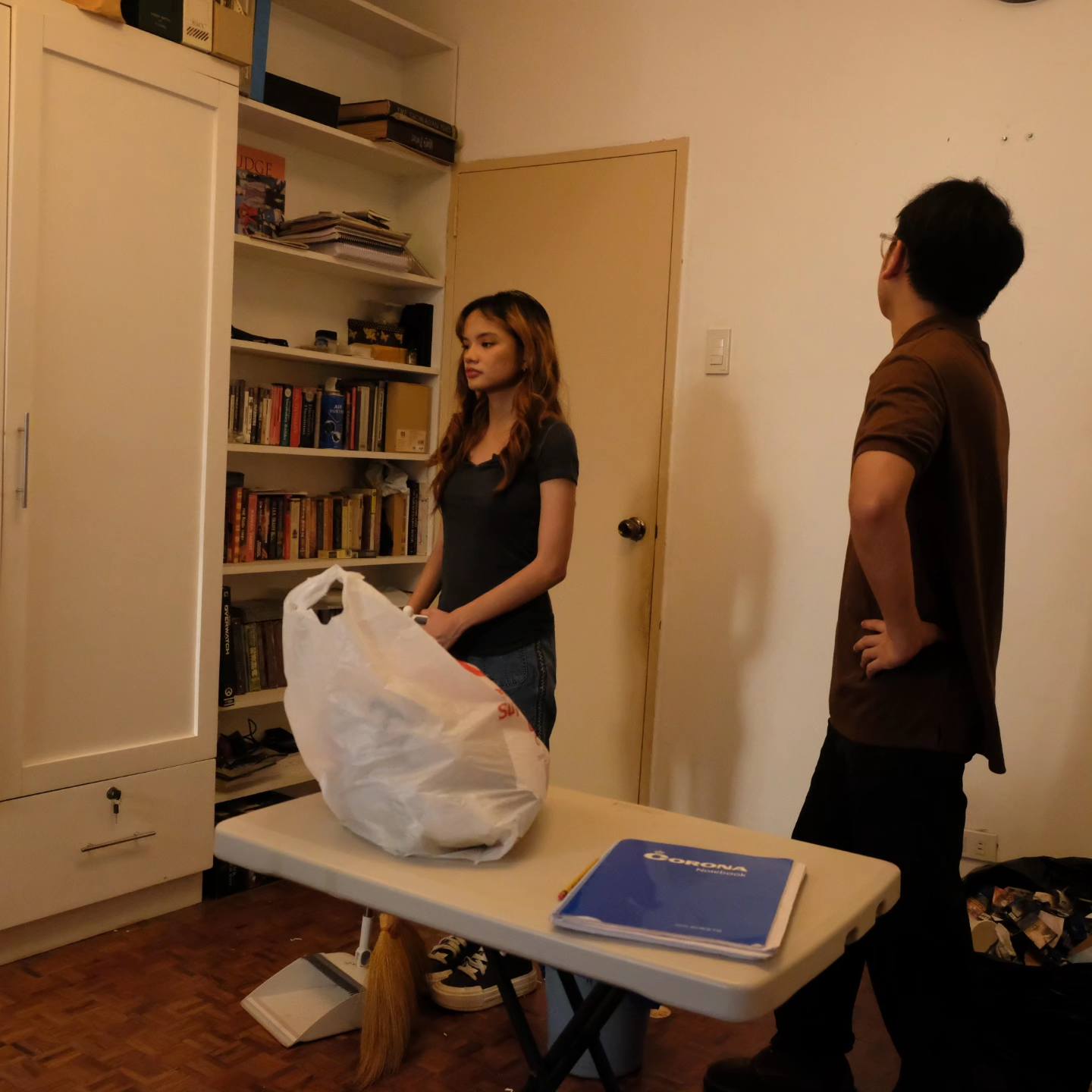
Though an amateur short film, Lazy Bird conveys its messages and themes in an immersive, engaging way—and does bear shades of similarity to Lady Bird. The relationship between mother and daughter, the breaking down of a relationship between two people who don’t really know each other, the secrets of people who just want to live their own lives—they all add up to an evocative yet simple story of the struggles of everyday life.
“When it comes to the inspiration from Lady Bird, I really didn’t try to copy anything word per word or scene by scene, because I thought that might be too “’lazy,'” Lian says. “But when I was writing the script, I thought that the mothers as characters would be an effective way to explore the theme of expectations vis a vis mothers and daughters and mothers and sons.”
A creative through and through, Lian’s still just new to filmmaking, getting her feet wet and exploring a new medium of storytelling.
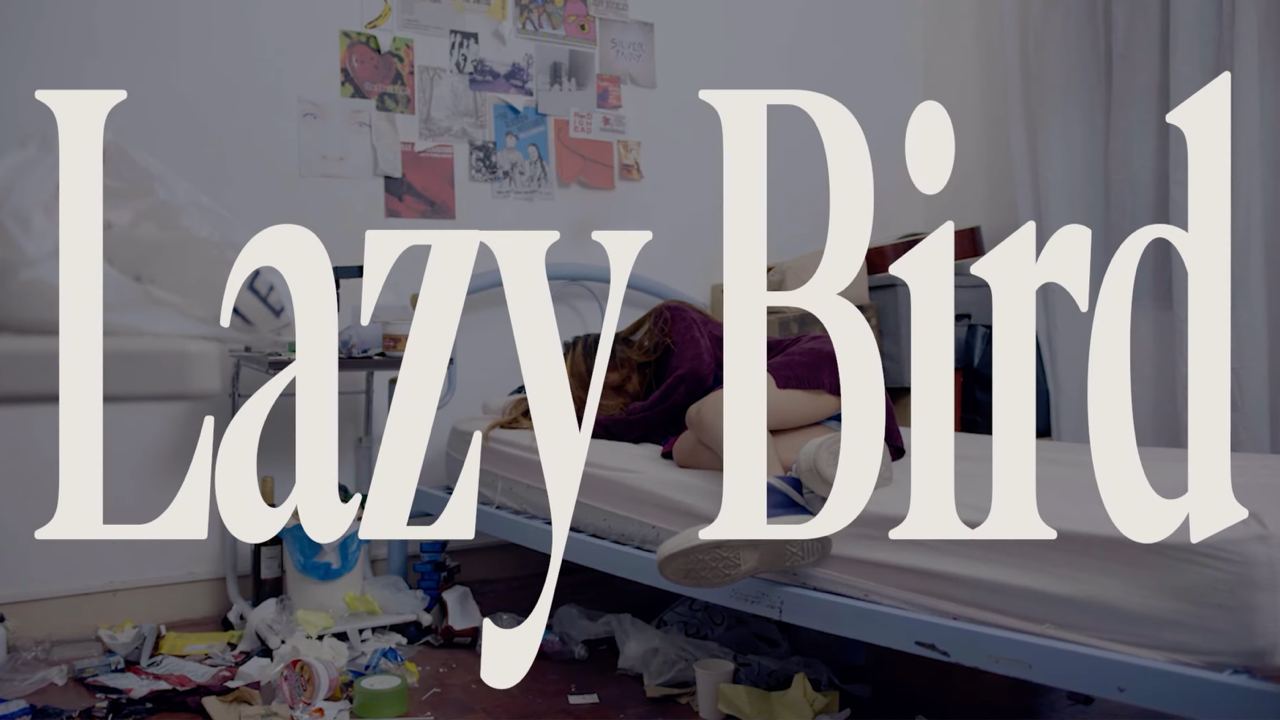
“I like telling stories about young Filipino women. I think theres a lot of potential with that category to explore. I’m relatively new to filmmaking and the arts! I want to be able to explore genres other than coming-of-age to tell stories about women—I just love women!” Though the experience of a young woman is drastically different from that of a young man, especially in this patriarchal society we live in, in Lazy Bird, having trouble with expectations is presented as a similar shared burden—and as we know, shared burdens make for lighter loads to bear.
For her start in filmmaking, Lian Laya put heart onto screen, and with a team of young creatives, crafted a pretty emotionally resonant story. “There’s something also to be said about a more feminist narrative in film, but thats something I hope to explore the more I create.”
Images from Lazy Bird, Lian Laya.
Continue Reading: ‘Saan Ako Pinaglihi?’ Filmmakers On Film As A Safe Queer Space And The Different Forms of Love
